ChatGPT: Transforming Conversations with AI
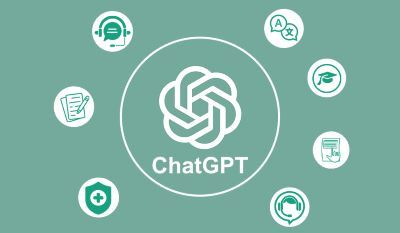
In today’s rapidly evolving digital landscape, artificial intelligence (AI) is revolutionizing how we interact with technology. At the forefront of this transformation is ChatGPT, developed by OpenAI. ChatGPT is an AI model designed to understand and generate human-like text based on vast amounts of training data. Since its release, it has demonstrated its potential to change the way we communicate and solve problems in various sectors.
ChatGPT’s importance lies in its ability to assist users with natural conversations, automate mundane tasks, and significantly boost productivity. From customer service to coding, ChatGPT is increasingly becoming an essential tool in day-to-day operations for businesses and individuals alike.
Key Features of ChatGPT
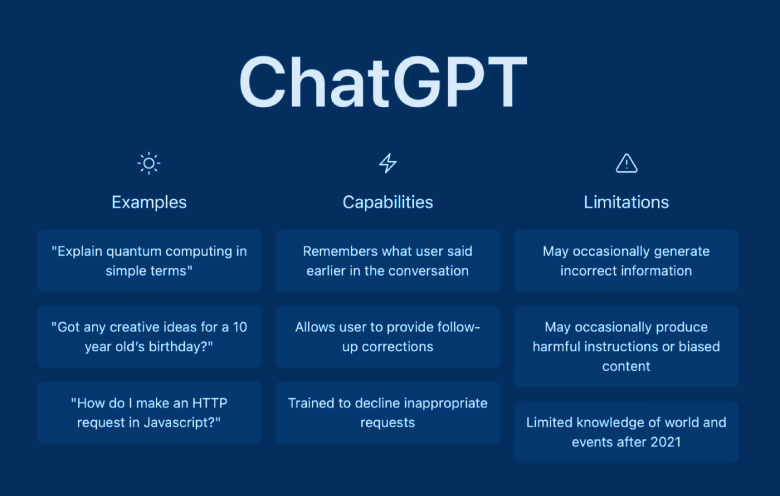
- Natural Language Processing (NLP)
ChatGPT excels in understanding and generating human-like language, making conversations smooth and natural.
- Versatility in Conversation Topics
Whether you need help drafting an email, writing a poem, or coding, ChatGPT can switch between different conversation topics with ease.
- Large-Scale Language Model Capabilities
Built on OpenAI’s GPT architecture, ChatGPT can generate coherent and contextually relevant responses even for complex queries.
- Interactive and Responsive:
ChatGPT continuously learns from interactions, making its responses more relevant and informed over time. This adaptability is crucial for businesses relying on dynamic customer engagement.
How ChatGPT Works
ChatGPT is based on OpenAI’s GPT architecture, which stands for Generative Pre-trained Transformer. The GPT framework uses a machine learning model that is trained on vast datasets of text, allowing it to generate text predictions based on given input.
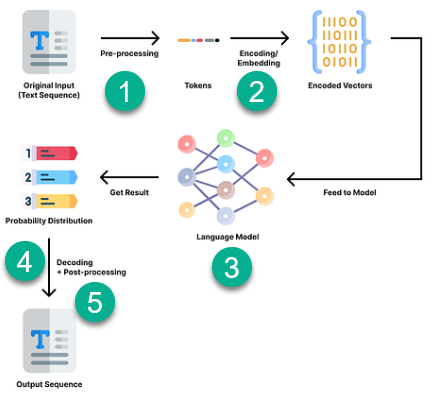
- GPT Architecture Explanation:
The GPT architecture relies on transformer neural networks, which allow it to handle vast amounts of data and generate responses based on user input.ChatGPT utilizes transformer-based models that focus on attention mechanisms, which help it learn which parts of the input data are most relevant when generating responses. This ensures that ChatGPT's replies are coherent and relevant to the context of the conversation.
- Training Data and Fine-Tuning Methods:
During pre-training, ChatGPT learns from large datasets that include text from books, websites, and articles. Afterward, the model undergoes fine-tuning, where it is adjusted to specific tasks such as answering questions or completing prompts in a conversational manner. ChatGPT is trained on a large corpus of internet text, but it is not tied to any specific knowledge base, which means it can provide general information without being updated in real time.
- Understanding User Input and Generating Responses:
ChatGPT analyzes input based on the context of the conversation and generates human-like responses by predicting the next word in a sequence.
- Tokenization:
ChatGPT breaks down input into tokens—small pieces of text. It then generates responses by predicting the next token based on the context of previous ones, allowing for highly accurate language generation.
Popular Use Cases for ChatGPT
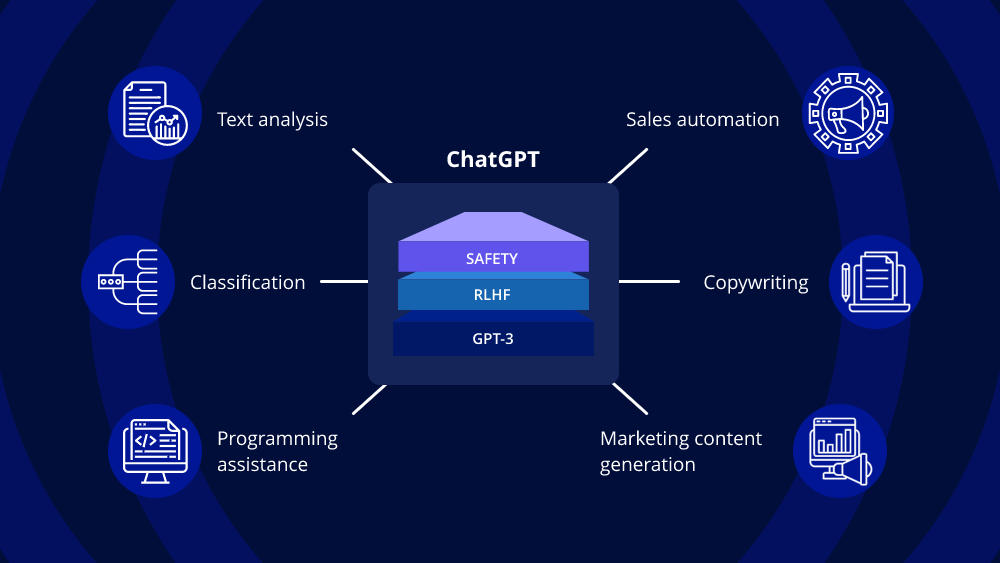
- Customer Service Automation
Companies are integrating ChatGPT into their customer service platforms to automate responses and provide 24/7 support.
- Content Creation and Editing
Writers, marketers, and businesses use ChatGPT for drafting content, editing articles, and generating new ideas.
- Coding Assistance
Developers can utilize ChatGPT to help debug code, write functions, and even explain programming concepts.
- Tutoring and Education:
ChatGPT’s vast knowledge base allows it to serve as an educational resource. Students can ask it questions about subjects ranging from history to mathematics, while educators can use it to develop educational content.
- Personal Productivity:
Individuals can use ChatGPT to manage daily tasks, whether it’s scheduling reminders, generating to-do lists, or helping draft important documents like emails or presentations.
Pros and Cons of ChatGPT

- Pros:
ChatGPT offers high-quality text generation across various fields and is highly versatile in its applications. Its ability to understand and generate natural-sounding responses makes it ideal for automation and creative writing.
- High-Quality Text Generation:
ChatGPT’s ability to produce text that mimics human speech patterns makes it an ideal tool for a wide range of applications, including customer service and creative writing.
- Wide-Ranging Applications:
ChatGPT can be applied across numerous fields, making it one of the most versatile AI models available today.
- Scalable Solution:
ChatGPT can handle a large volume of requests simultaneously, making it a scalable solution for businesses of all sizes.
- Cons:
While ChatGPT is impressive, it is not without flaws. Occasionally, it produces inaccurate or nonsensical answers, especially when given vague prompts. Additionally, it may struggle to maintain context during longer conversations.
- Occasional Inaccuracies:
ChatGPT may sometimes generate responses that are incorrect or misleading, especially when faced with ambiguous or niche topics.
- Lack of Context Over Time:
In long conversations, ChatGPT may lose track of earlier context, leading to responses that are off-topic or repetitive.
- Ethical and Safety Concerns:
While ChatGPT is an effective conversational AI, there are concerns about its use in generating misinformation or engaging in potentially harmful discussions.
Comparing ChatGPT to Other AI Tools
- Claude AI:
Claude AI focuses on ethical AI development and aims to provide safer, more reliable AI interactions. Unlike ChatGPT, which sometimes faces ethical concerns, Claude AI prioritizes transparency and fairness, making it a strong contender for applications where user safety and trust are paramount..
- Copilot:
Copilot integrates deeply with Microsoft Office tools, focusing on enhancing workplace productivity by assisting users in tasks like writing documents, creating spreadsheets, and generating presentations. While ChatGPT is more versatile across various industries, Copilot excels at optimizing specific office workflows..
- Gemini:
Gemini is emerging as a potential game-changer in the AI world, offering state-of-the-art performance in terms of adaptability and accuracy. Though still in its early stages, Gemini is likely to challenge the capabilities of both ChatGPT and other AI models in more specialized use cases, such as AI-powered creative tools and business analytics.
The Future of ChatGPT
As AI continues to evolve, OpenAI is working on improving ChatGPT’s capabilities. Upcoming developments could include better contextual understanding, improved accuracy, and integrations into more industries, potentially making ChatGPT even more indispensable in areas such as healthcare, education, and entertainment.
The future of ChatGPT is bright, with advancements in AI technologies continually pushing the boundaries of what’s possible. Some anticipated developments include:
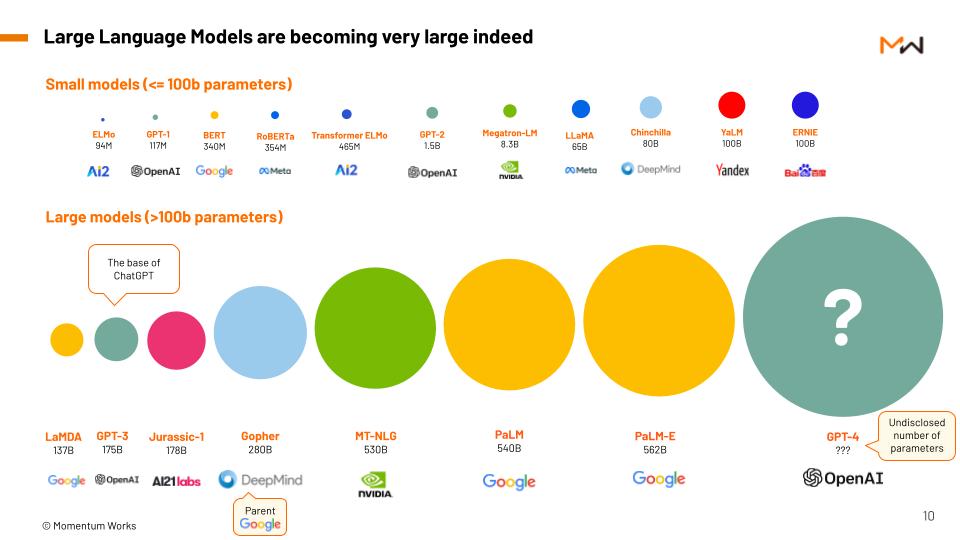
- Improved Contextual Understanding:
Future versions of ChatGPT are expected to have enhanced capabilities in maintaining context over extended conversations, making interactions more natural and coherent.
- Incorporating Real-Time Data:
ChatGPT may soon be integrated with real-time data sources, allowing it to generate up-to-date information and provide even more accurate responses.
- Industry-Specific Applications:
There is potential for the development of industry-specific ChatGPT models, optimized to handle tasks unique to certain sectors like healthcare, legal, and financial services.
- Advanced Personalization:
The ability to personalize interactions based on user preferences and past behavior is another potential advancement, enabling ChatGPT to better meet individual needs.
Conclusion
ChatGPT has already made significant strides in revolutionizing communication and productivity through AI-driven conversations. Its versatility, advanced natural language processing, and growing list of applications make it an exciting tool in today’s digital world. As technology progresses, ChatGPT’s potential will only continue to expand, further embedding itself into everyday life and work.
ChatGPT is a remarkable innovation that has already transformed how we communicate with AI. Its versatility, natural language capabilities, and wide-ranging applications make it an indispensable tool for businesses, developers, and everyday users. As AI technology evolves, we can expect ChatGPT to continue leading the charge, setting new standards for conversational AI and productivity tools. Whether you're looking to enhance customer engagement, streamline workflows, or simply explore the possibilities of AI, ChatGPT offers an exciting glimpse into the future of human-computer interaction.
Read More





